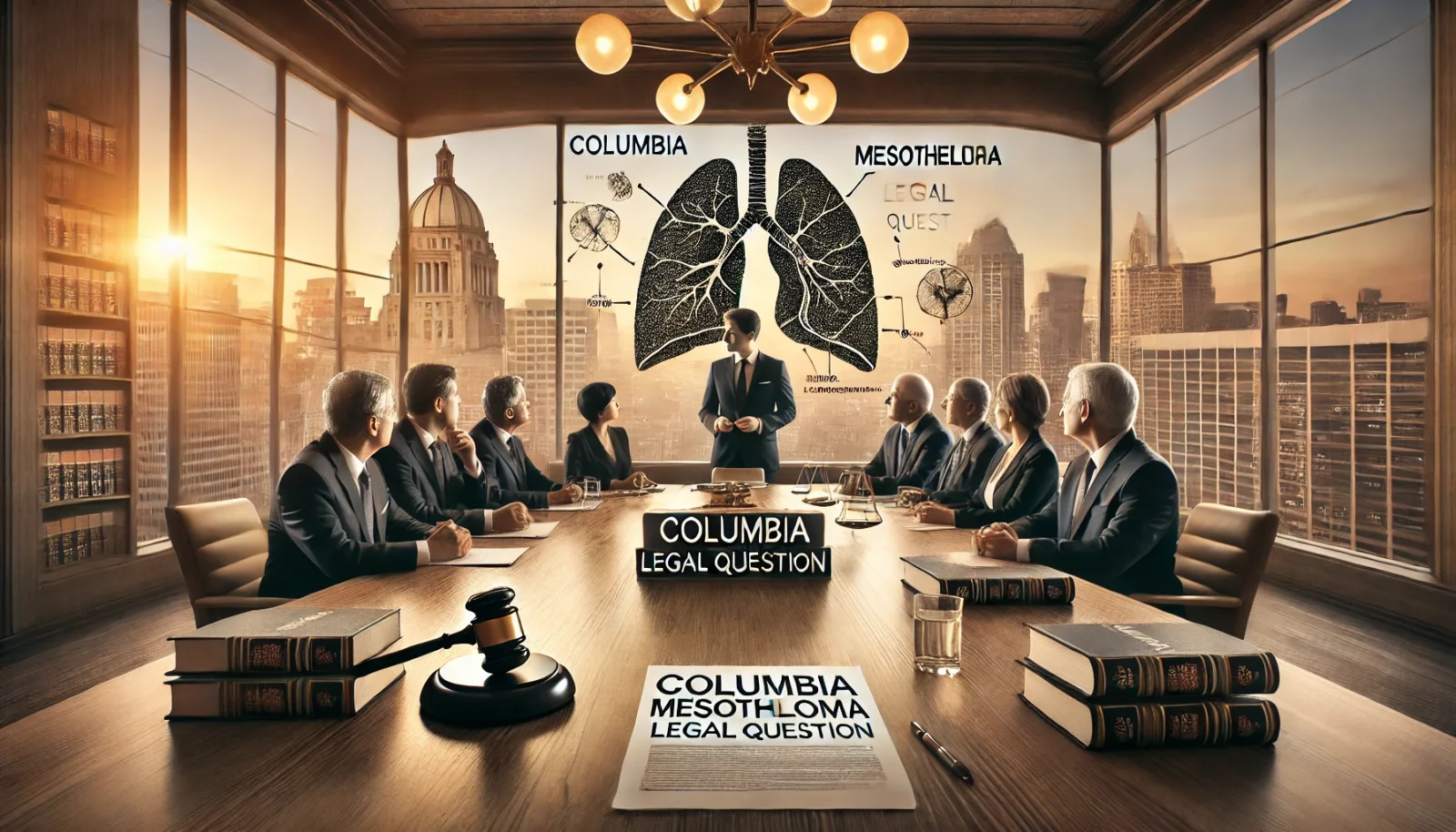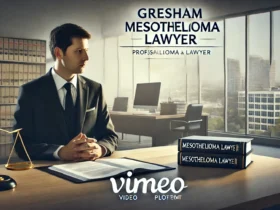Introduction
Mesothelioma is a serious cancer linked to asbestos exposure. It affects the lining of the lungs, heart, or abdomen. This disease is rare but very dangerous. Many people diagnosed with mesothelioma have faced long-term exposure to asbestos at work or in their homes. Understanding this illness is important for patients and their families.
In Columbia, legal questions arise when dealing with mesothelioma. Patients may want to know if they can seek compensation for their medical bills and suffering. They may ask how to prove exposure to asbestos. The legal process can be complex and confusing. Knowing the laws in Columbia helps patients understand their rights.
Many people may not realize they can file a claim or lawsuit. This can provide financial support during a tough time. It is crucial for patients to get answers to their Columbia mesothelioma legal questions. Seeking the right legal advice can help navigate the options available. Patients and families need clear information to make informed decisions. Understanding mesothelioma and its legal implications is a vital step toward finding help and support.
What Is Mesothelioma?
Mesothelioma is a type of cancer that occurs in the thin layer of tissue surrounding the lungs, heart, or abdomen. It is primarily linked to exposure to asbestos, a material once widely used in construction and manufacturing. There are four main types of mesothelioma: pleural mesothelioma, which affects the lungs; peritoneal mesothelioma, which affects the abdomen; pericardial mesothelioma, affecting the heart; and testicular mesothelioma, a rare form.
The main cause of mesothelioma is asbestos exposure. When asbestos fibers are inhaled or swallowed, they can get trapped in the body. Over time, these fibers can cause inflammation and damage to cells, leading to cancer. People at higher risk include workers in industries like construction, shipbuilding, and manufacturing. Family members of these workers may also be at risk due to asbestos fibers on clothing.
Other risk factors include smoking, which can worsen the effects of asbestos exposure, and certain genetic factors. Awareness of these causes and risks is crucial for prevention and early detection of mesothelioma. Understanding the disease helps individuals and families take necessary actions for health and legal support.
The Legal Landscape For Mesothelioma Cases In Columbia
In Columbia, the legal framework for mesothelioma cases is designed to provide support for those affected by this serious illness. Mesothelioma laws focus on the rights of patients and their families to seek compensation for damages related to asbestos exposure. These laws allow victims to file claims against companies responsible for their exposure, aiming to cover medical expenses, lost wages, and pain and suffering.
Key legal terms are essential to understand this landscape. Tort law is a major aspect, which involves civil wrongs that cause harm to individuals. Under tort law, victims can hold companies liable if they failed to provide a safe environment. Liability refers to the legal responsibility of these companies to compensate victims for their negligence.
In Columbia, the statute of limitations sets a deadline for filing claims, making it crucial for victims to act quickly. Knowing these laws helps patients navigate their legal options effectively. Understanding the legal landscape empowers individuals to seek justice and compensation for the impact of mesothelioma on their lives.
Common Legal Questions Surrounding Mesothelioma
When dealing with mesothelioma, several legal questions often arise. First, potential claimants need to know the eligibility criteria for filing a claim. Generally, individuals diagnosed with mesothelioma due to asbestos exposure can file. Family members may also file claims on behalf of deceased loved ones.
Another important question is how to prove asbestos exposure. This often involves gathering medical records, work history, and evidence of asbestos use in workplaces. Expert testimonies and documents from previous employers can help strengthen the case.
People also wonder about the types of compensation available. Victims may seek compensation for medical expenses, lost wages, pain and suffering, and other damages. Each case is unique, so compensation amounts can vary widely.
Finally, it is essential to know the statute of limitations in Columbia for mesothelioma cases. This law sets a time limit on how long individuals have to file a claim. In Columbia, the typical statute of limitations is generally three years from the diagnosis or discovery of the disease. Understanding these legal aspects is crucial for anyone affected by mesothelioma.
Finding The Right Legal Representation
Finding the right legal representation is crucial for mesothelioma cases. Hiring a specialized attorney with experience in mesothelioma and asbestos litigation can significantly impact the outcome of your case. These lawyers understand the complexities of the law and have dealt with similar cases, which increases the chances of securing fair compensation.
When looking to choose a mesothelioma lawyer in Columbia, consider their experience and track record. Check for client reviews and ask about their success in winning cases. A good lawyer should be familiar with local laws and have connections to experts who can support your case.
During a consultation, it’s important to ask key questions. Inquire about their experience specifically with mesothelioma cases and the strategies they would use. Ask about fees and how they charge for their services, such as contingency fees. It’s also helpful to discuss timelines and what to expect during the legal process. By finding the right attorney, you can navigate the legal landscape more effectively and focus on your health and well-being.
The Process Of Filing A Mesothelioma Lawsuit
Filing a mesothelioma lawsuit can be a crucial step toward obtaining compensation. Here’s a step-by-step guide to help navigate the process.
1. Consult with a Lawyer: Start by meeting with a specialized attorney who understands mesothelioma cases. They will assess your situation and discuss your options.
2. Gather Evidence: Collect necessary documents, including medical records, work history, and evidence of asbestos exposure. This information will support your claim.
3. Filing the Complaint: Your lawyer will prepare and file a legal complaint in the appropriate court. This document outlines your case and the damages you seek.
4. Discovery Phase: Both parties will exchange information and evidence. This phase may involve depositions, where witnesses provide sworn statements.
5. Negotiation and Settlement: Many cases are settled out of court. Your lawyer will negotiate with the defendant’s legal team to reach a fair settlement.
6. Trial: If a settlement is not reached, the case may go to trial. Here, both sides will present their evidence, and a judge or jury will make a decision.
Expected Timeline: A mesothelioma case can take anywhere from a few months to several years, depending on complexity and whether it goes to trial.
Preparation: Before filing, ensure all documents are organized. Work with your attorney to clarify your goals and understand the process. Being well-prepared can help ease the journey ahead.
Potential Outcomes Of Mesothelioma Legal Cases
In mesothelioma legal cases, there are generally two main outcomes: settlement and trial.
Settlement occurs when both parties agree on compensation without going to court. Many mesothelioma cases are resolved this way, as settlements can be quicker and less stressful. This option allows victims to receive compensation more rapidly, helping them manage medical bills and other expenses. The amount can vary based on factors like the extent of damages and evidence of negligence.
On the other hand, if a settlement cannot be reached, the case may proceed to trial. During a trial, both sides present their arguments, and a judge or jury makes the final decision. Trials can take longer and involve more uncertainty. However, they may also lead to larger compensation awards if the jury finds in favor of the plaintiff.
In Columbia, there have been notable past verdicts in mesothelioma cases. Some plaintiffs have received significant awards, highlighting the court’s recognition of the suffering caused by asbestos exposure. These examples can inspire hope for those considering legal action, demonstrating that justice and compensation are achievable. Understanding these potential outcomes helps victims make informed decisions about their cases.
Resources For Mesothelioma Patients And Families
Mesothelioma patients and their families have access to various resources to help them navigate this challenging time.
Support groups and advocacy organizations play a crucial role in providing emotional support. These groups offer a space for patients and families to connect with others facing similar experiences. Organizations such as the Mesothelioma Applied Research Foundation and the Asbestos Disease Awareness Organization provide resources, information, and community support.
Financial assistance options are also available for those impacted by mesothelioma. Many nonprofits and foundations offer grants to help cover medical expenses, travel costs for treatment, and other financial burdens. Patients can explore programs like the Patient Advocate Foundation, which helps with co-pays and other medical costs.
Additionally, educational resources about mesothelioma are essential for understanding the disease and its implications. Websites, brochures, and webinars provide valuable information on treatment options, legal rights, and coping strategies. Knowing where to find these resources can empower patients and families, helping them make informed decisions about their health and legal options. These resources are vital for managing the challenges that come with a mesothelioma diagnosis.
Conclusion
In summary, mesothelioma is a serious illness primarily caused by asbestos exposure, and understanding the legal landscape surrounding it is essential for patients and families. Key legal questions often involve eligibility for claims, how to prove exposure, types of compensation available, and the statute of limitations in Columbia. Finding the right legal representation and knowing the process for filing a lawsuit can significantly impact the outcome of a case.
Additionally, numerous resources are available for mesothelioma patients, including support groups, financial assistance, and educational materials. These can provide vital help during a challenging time.
If you or a loved one is facing a mesothelioma diagnosis, it is crucial to seek legal advice. Addressing your Columbia mesothelioma legal questions with a specialized attorney can help navigate your options and ensure that you receive the compensation you deserve. Taking this step can lead to a more secure future, allowing you to focus on health and well-being.
Frequently Asked Questions (Faqs)
What Should I Do If I Suspect I Have Mesothelioma?
If you suspect you have mesothelioma, the first step is to see a doctor for a thorough evaluation. Share your medical history and any known asbestos exposure. Early diagnosis is crucial for effective treatment options. After diagnosis, consider consulting with a specialized attorney to discuss your legal rights and options.
How Long Do I Have To File A Lawsuit?
The time limit for filing a mesothelioma lawsuit, known as the statute of limitations, varies by state. In Columbia, you generally have three years from the date of diagnosis or discovery of the disease to file a claim. It is important to act quickly to ensure you meet these deadlines.
Can I File A Claim On Behalf Of A Deceased Family Member?
Yes, you can file a claim on behalf of a deceased family member who passed away from mesothelioma. This is typically done through a wrongful death lawsuit. Family members or the estate executor can seek compensation for medical expenses, lost income, and emotional suffering. Consulting with a specialized attorney can guide you through this process.
To read more, visit our blog page. We do have more topics!










Got a Questions?
Find us on Socials or Contact us and we’ll get back to you as soon as possible.